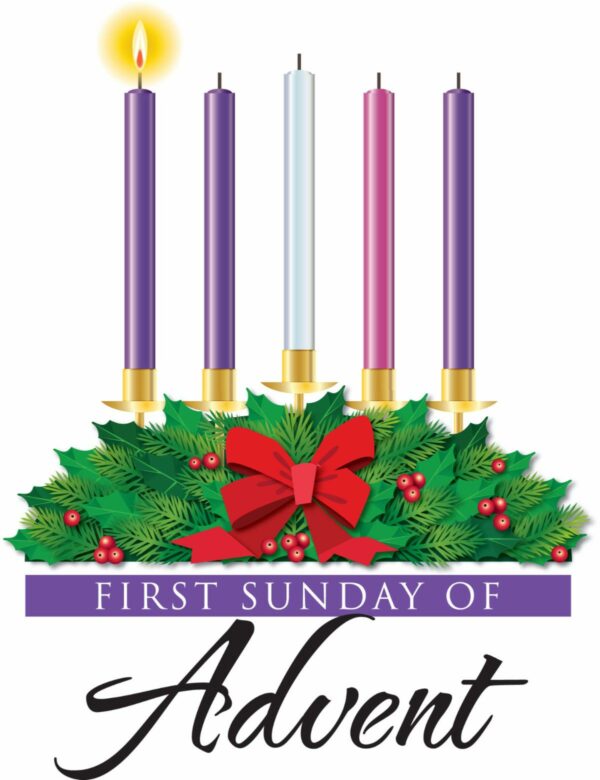
Dear PPPC –
I’ve grown to appreciate Advent more with each passing year. When I was younger, I didn’t understand why we couldn’t just get to the Christmas joy already. Out in the world, Christmas begins before December 25th, so why does the Church have this tradition of Advent, an observed time of waiting, of preparing, of longing, of yearning? But then you grow older and you weep, you grieve, you begin to understand longing in a different way.
Advent is full of longing and expectancy; it is also full of hope, peace, love, and joy. Advent is from the Latin adventus, which means “coming” or “visit.” Advent is the season of preparation for the in-breaking of God into the world, the arrival of Jesus the Messiah in the manger. Advent is also a reminder of our anticipation of the return of Jesus Christ, when God will bring full restoration to the world. Because we know the Risen Lord, we do not long as those without hope.
…
On Sunday, our closing hymn will be Come, Thou Long Expected Jesus (arranged with congregational and choir portions). Come, Thou Long Expected Jesus was first published in 1744 in Charles Wesley’s Hymns for the Nativity of our Lord, although today it is often sung in Advent, rather than on Christmas Eve or Christmas Day.*
It’s a hymn that has a quality of petition – a prayer that implores Christ to be among us. Imperative verbs are used six times in the two stanzas found in most hymnals, the cumulative effect of these petitions is a tone of supplication, recalling the deep longing for the Messiah—the Promised One.*
Wesley also draws upon another cumulative technique, the repetition of a single word for effect. “Born” appears four times. Each time “born” is sung, an aspect of Jesus’ mission to a troubled world is revealed: “Born to set thy people free”; “Born thy people to deliver”; “Born a child and yet a king”; “Born to reign in us forever.”*
Perhaps what I find most striking about this hymn is that although we live in a different time than Charles Wesley, the longings of people’s hearts are just as deep. We long for security, love, relationships, meaning. We long for justice and compassion. To those who open themselves to its message, this hymn identifies with that longing at the deepest levels of our existence. Where there is no longing, there can be little meaning. Hope is central to Christian experience.
And where will our longing, our hopeful waiting lead us? Where is the ultimate home of our hope? In the final line Wesley takes us there: “Raise us to thy glorious throne.”
Here’s one of my favorite versions of this hymn, for your listening and worship during this Advent season: Come, Thou Long Expected Jesus.
I hope to see you in worship this Advent Season, in person or online.
In the name of the One who taught us to love one another,
Pastor Molly
*Information about and reflections on Come, Thou Long Expected Jesus from C. Michael Hawn, Distinguished Professor of Church Music, Perkins School of Theology
